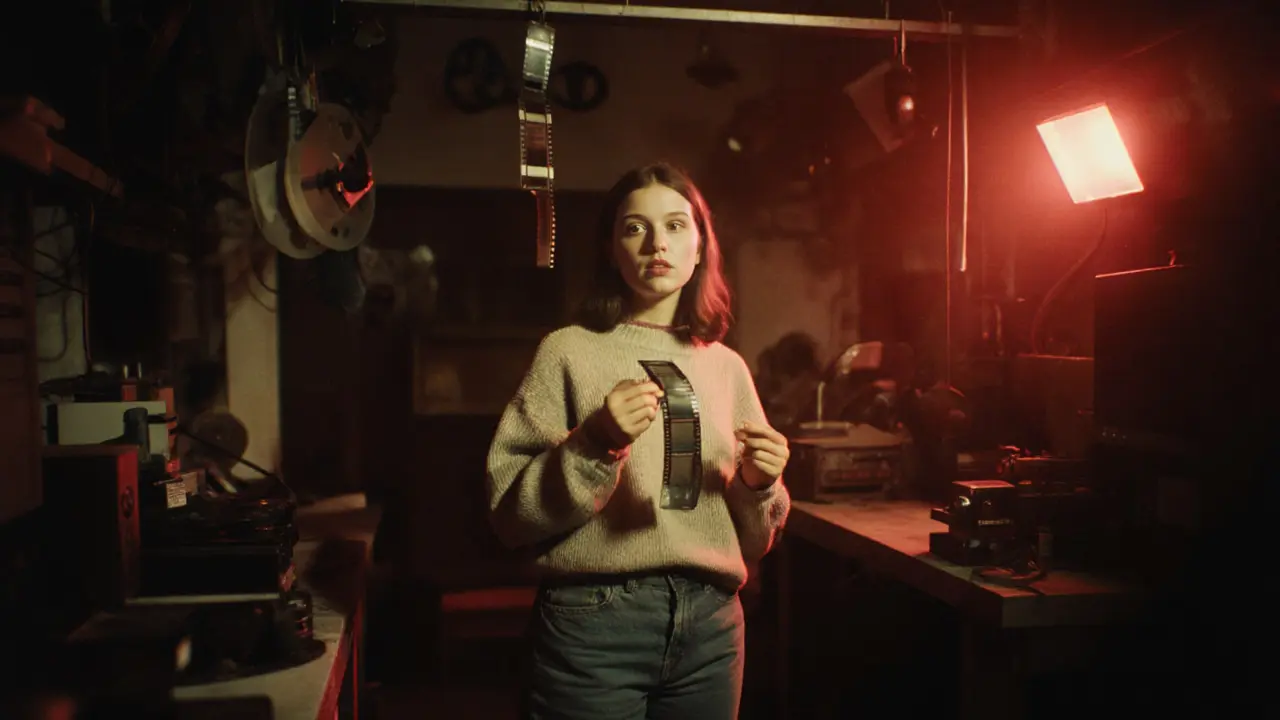Michelle Ferrari isn’t just another name in the adult industry-she’s a figure who turned personal resilience into a public legacy. Born in Rome in 1972, she didn’t just enter the world of adult entertainment; she reshaped how it was seen, especially in Italy. While many remember her for her on-screen presence, few know the quiet treasures she built behind the scenes: a network of trusted professionals, a deep understanding of Italian media law, and a personal code that kept her grounded in a chaotic industry.
The Rome That Shaped Her
Rome in the early 1990s wasn’t just a city of ancient ruins and cobblestone streets. It was a place where underground media thrived, and boundaries between art, commerce, and personal expression were blurry. Michelle grew up near Trastevere, where neighbors knew her as the quiet girl who read Dante and sketched in her notebook. By 17, she was working part-time at a local film lab, developing reels for indie directors. That’s where she first saw how cameras could turn vulnerability into power.
Her first major role came in 1994, not as a starlet chasing fame, but as a last-minute replacement for an actress who fell ill. The director, a veteran of Italian erotic cinema, later said she had ‘the kind of presence that doesn’t need to shout.’ That role led to a string of projects, but Michelle never chased trends. She turned down roles that demanded nudity without context. She insisted on script approval. She negotiated for residuals-something almost unheard of at the time in Italy’s low-budget sector.
Her Real Treasures: Control and Consistency
What made Michelle Ferrari different wasn’t her looks or charisma-it was her discipline. While others moved from one production to the next, she built a small team: a lawyer who understood Italian copyright law, a translator fluent in both Italian and English, and a former journalist who helped her craft interviews that weren’t just promotional, but honest.
She kept detailed records of every shoot: dates, locations, crew names, payment terms. She never signed contracts without a clause that allowed her to withdraw if the content veered into non-consensual territory. In 2001, when a producer tried to re-release old footage without permission, she sued-and won. The case became a reference point in Italian media law. Courts cited her contract language in later rulings.
She also refused to be typecast. After her peak years in the late 90s, she shifted focus. She started mentoring young women entering the industry, teaching them how to read contracts, how to say no, and how to protect their digital footprint. Her home in Rome became a quiet hub-no cameras, no fans, just coffee, legal documents, and conversations.
The Legacy She Left Behind
Michelle Ferrari retired from performing in 2008. She didn’t announce it. She just stopped showing up on set. By then, she owned a small production company that specialized in educational content about consent and digital rights. It wasn’t flashy. It didn’t make headlines. But it reached thousands of women across Italy who didn’t know where else to turn.
Today, her archive of contracts, scripts, and personal notes sits in a private collection at the University of Rome’s Media Studies Department. Researchers call it the Ferrari Collection. It’s not about titillation-it’s about agency. One professor described it as ‘a manual for survival in a system designed to exploit.’

Why People Still Talk About Her
People still mention Michelle Ferrari because she refused to play the game the way it was written. She didn’t need to be the most famous. She didn’t need to be the most provocative. She needed to be in control. That’s rare in any industry, but especially in one where women are often treated as disposable.
She turned her body into a tool-not a product. She used her voice to change rules, not just to sell tickets. And in a city like Rome, where tradition and modernity clash daily, she carved out a space where a woman could be both seen and respected.
What’s Often Missed About Her
Many articles about Michelle Ferrari focus on her early career, her films, or her rumored relationships. But the real story lies in the details most people overlook:
- She never used a stage name. She performed under her real name-Michelle Ferrari-because she refused to hide.
- She donated a portion of her earnings to a Rome-based shelter for women escaping abusive relationships.
- She taught herself basic coding so she could monitor how her content was being used online.
- She kept handwritten journals of every legal case she was involved in, down to the judge’s name and the exact wording of rulings.
- She never gave a single interview where she talked about her body. Every interview was about rights, law, and education.
These aren’t footnotes. They’re the foundation of her legacy.

Her Influence Today
Even after retirement, her impact echoes. In 2023, Italy passed a new law requiring adult film producers to provide clear consent documentation for all performers. The draft was modeled after clauses Michelle used in her own contracts over two decades ago. A group of young performers in Milan now call themselves ‘The Ferrari Collective’-not as a tribute, but as a mission.
She didn’t build a brand. She built a standard. And in an industry where most fade into obscurity, she left behind something that still moves the needle: proof that you can be part of a system without letting it define you.
Who is Michelle Ferrari?
Michelle Ferrari is an Italian former adult film performer and advocate who rose to prominence in the 1990s. Known for her professionalism and legal awareness, she used her platform to push for performer rights, contract transparency, and consent standards in Italy’s adult industry. She retired in 2008 and now focuses on education and legal mentorship.
Did Michelle Ferrari ever speak publicly about her career?
Yes, but rarely. When she did speak, it was never about her personal life or physical appearance. She gave interviews focused on legal rights, contract negotiation, and the importance of digital privacy for performers. Her public statements were always structured around education, not entertainment.
What made her different from other performers of her time?
Unlike many in her field, Michelle Ferrari insisted on control-over her scripts, her contracts, and her image. She refused roles that lacked narrative context, negotiated residuals, and sued producers who violated her terms. She also created educational materials for newcomers, something virtually no one else in Italy was doing at the time.
Is Michelle Ferrari still active in the industry?
No, she retired from performing in 2008. She no longer appears in films or gives interviews. Her current work is behind the scenes, focused on legal advocacy and mentoring. Her personal archive is preserved at the University of Rome for research purposes.
Why is her legacy important today?
Her legacy matters because she proved that performers can be more than subjects-they can be agents of change. The consent laws now used in Italy’s adult industry trace back to clauses she drafted in the 1990s. She showed that professionalism, legal knowledge, and personal boundaries aren’t just possible-they’re powerful.
Where to Learn More
If you want to understand Michelle Ferrari beyond the headlines, start with the Ferrari Collection at the University of Rome. It includes her original contracts, handwritten notes, and transcripts of her mentorship sessions. There’s no public access, but researchers can request access through the university’s media archives department.
Her story isn’t about scandal. It’s about sovereignty. In a world that often reduces women to their image, she chose to define herself by her actions, her choices, and her quiet, relentless insistence on being treated as a person-not a product.








